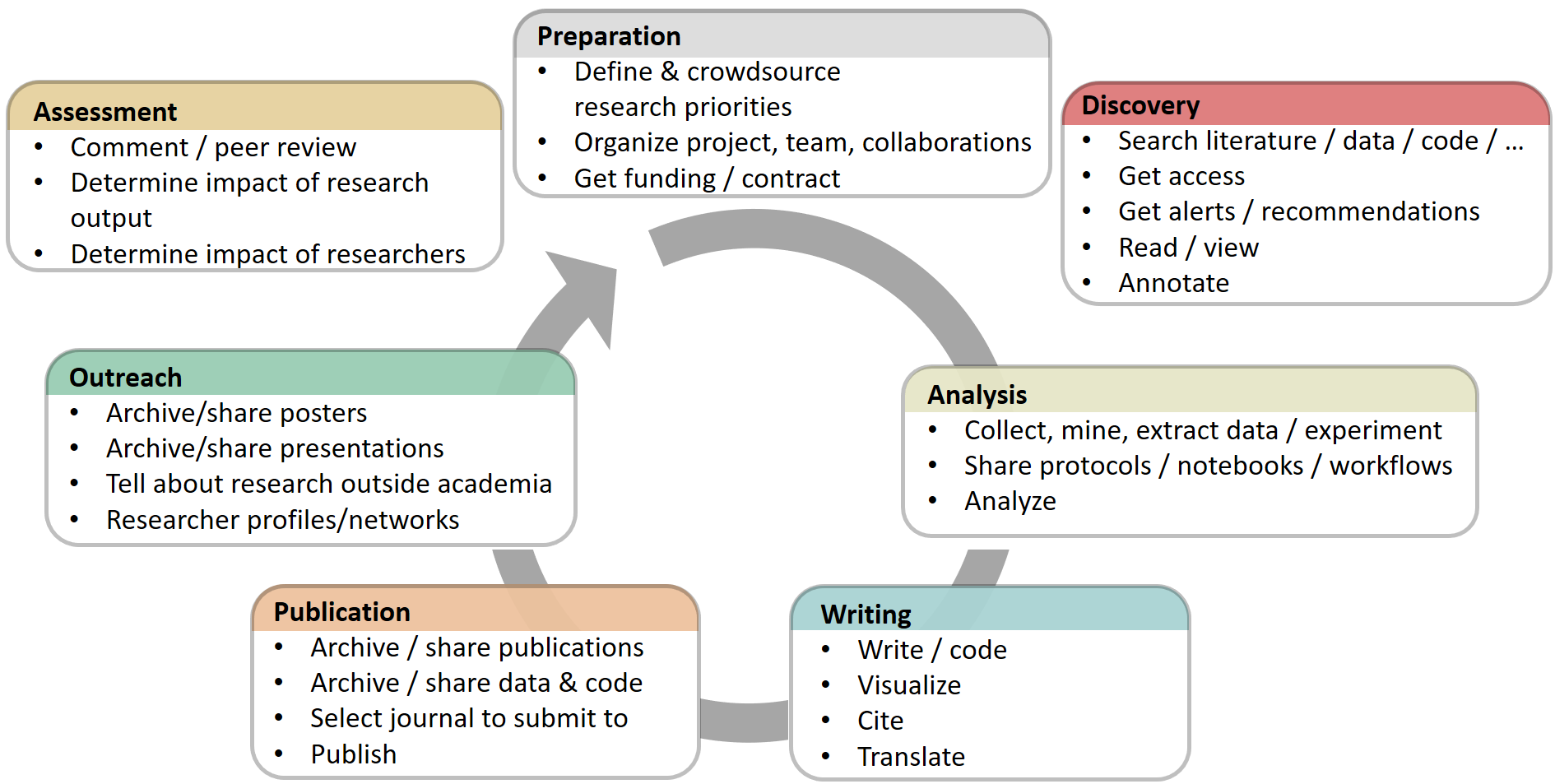General principles
Research should be transparent, reusable, available & free.
Open research principles are inclusion, fairness, equity. Open research practices promote accountability and scientific rigour. Integrated with the scientific research cycle, open research practices usually include:
Open methodology
An open methodology is to allow other researchers to repeat the work and apply it elsewhere. In psychology and linguistics, pre-registration has become a popular option.
Open software and source
Open source generally refers to open and free access to the blueprint of a product. In research, it can refer to your analysis scripts, models and code. A popular site for open source software is GitHub. Alternative, you can also choose to share your scripts on OSF.
Open data
Open data is the process of releasing both raw and processed data from your experiments, enabling others to analyse it without restriction. This includes sharing and documenting data, code, analysis, and workflows, following the FAIR principles - Findable, Accessible, Interoperable, and Re-usable. This process may involve writing metadata files and notebooks, and properly licensing your data.
Open access
Open access is the model under which papers are available for anyone to read without having to pay, and that license allows secondary use such as text-mining. You can find a list of preprint servers and university fee waiver applications in the Resource page.
More on Open Access publication
Open peer review
Open peer review is about transforming the peer review process; it is about making peer review a collaborative process between authors and reviewers; it is about constructive criticism, but with the goal of helping the authors to get published.
Open education
Open education refers to the open and free availability of educational resources. This does not mean that you cannot charge for education - no one can make the tutor work for free - but the resources that are used to educate can be made freely available.
 Image source: https://open-science-training-handbook.gitbook.io/book/open-science-basics/open-concepts-and-principles
Image source: https://open-science-training-handbook.gitbook.io/book/open-science-basics/open-concepts-and-principles